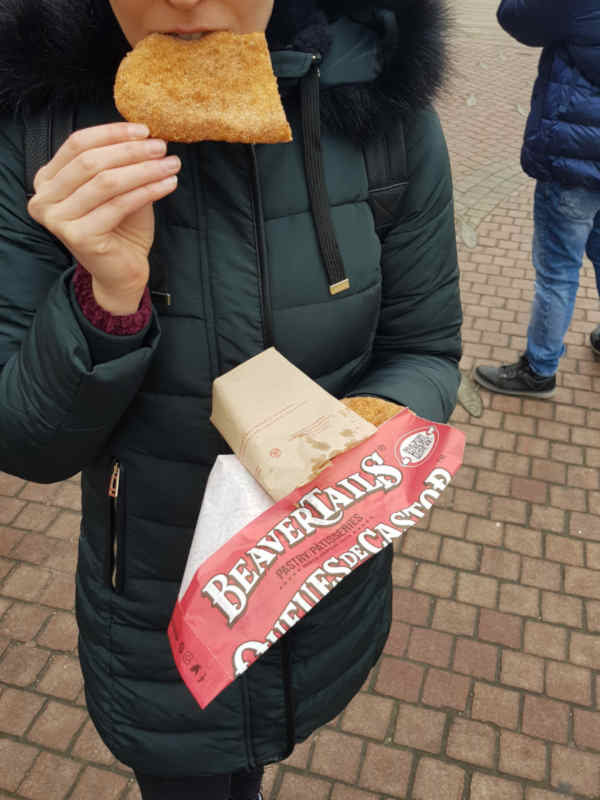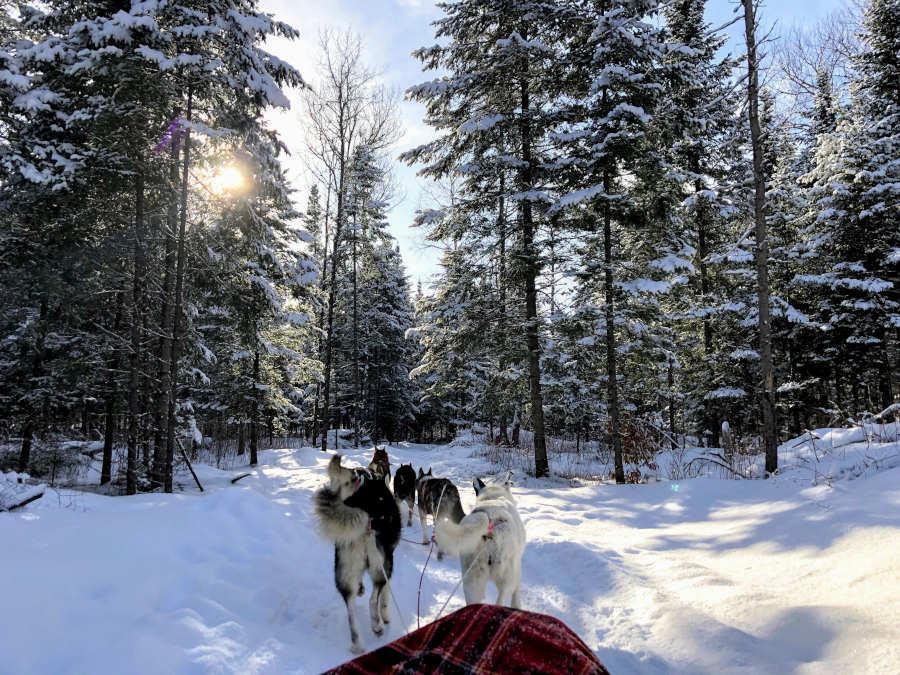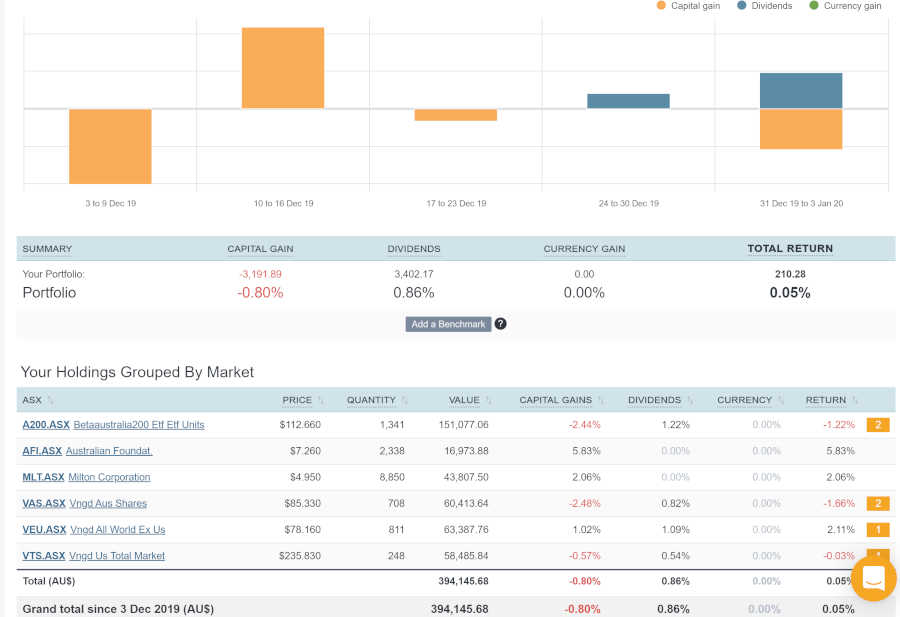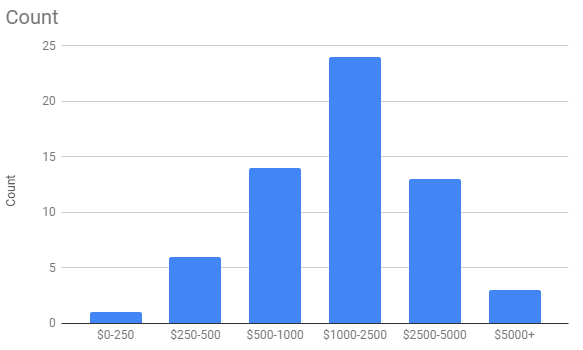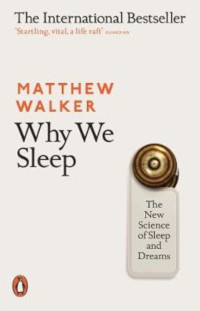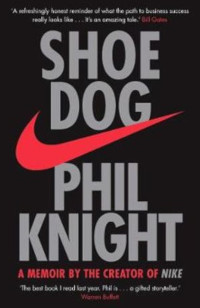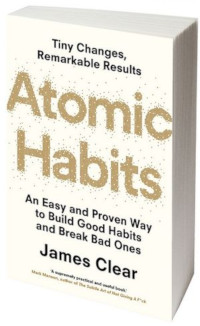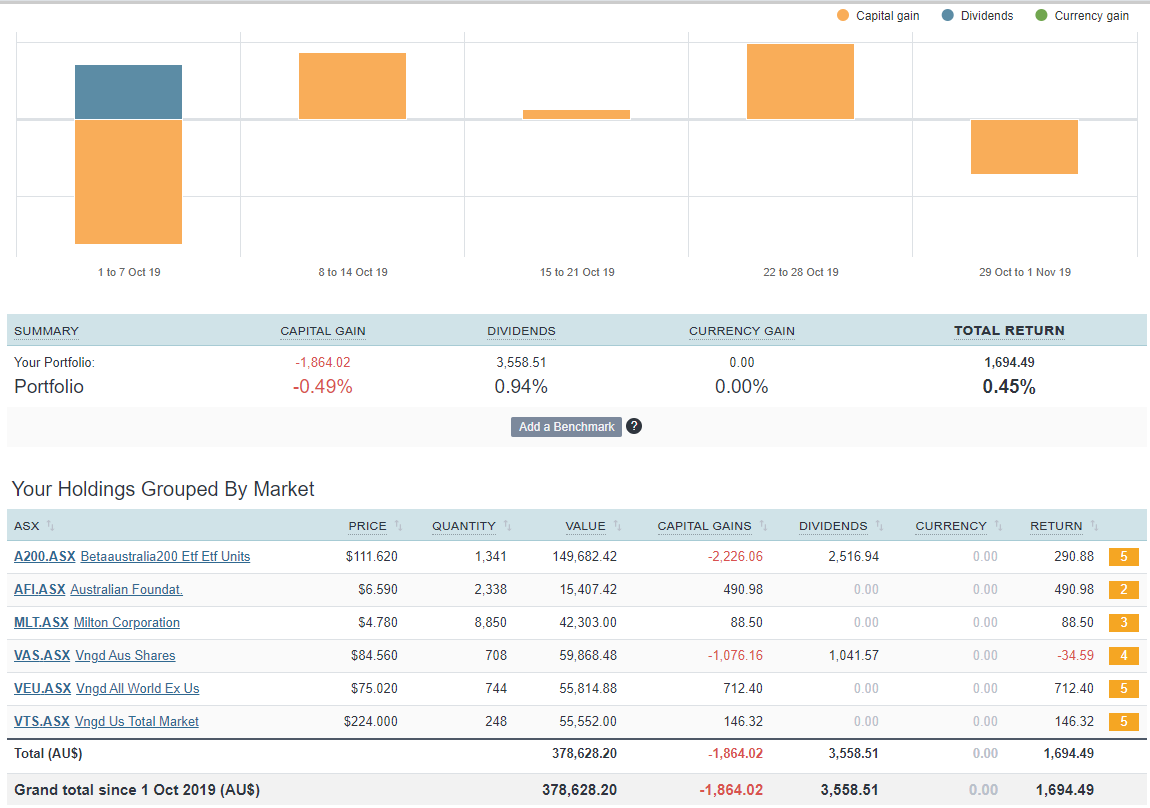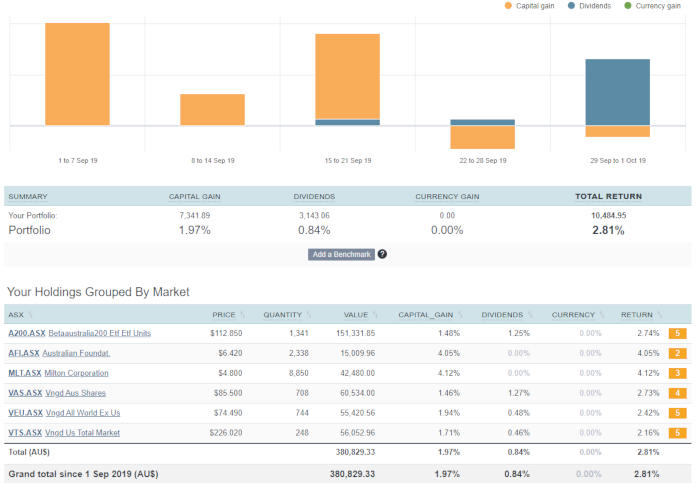
Podcast – Superannuation and FIRE
Summary
We’re kicking off 2020 with probably my most requested podcast topic of all time… and that’s Super and its role in the FIRE journey for Australians.
This is an absolute monster of a podcast (nearly 1.5 hours long 🤯) where I’m speaking to Super Guru James Coyle. We cover so many things in this pod and the topics range from “I know nothing about how Super works” all the way into the nitty-gritty technical details that hopefully will shed some light for us FIRE folk and maybe will help some people out there that are weighing up the pros and cons of Super when it comes to FIRE.
Shoutout to everyone who contributed to the questions on the Aussie FIRE discussion Facebook group. I did my best to tried to ask James the most ‘liked’ questions from the community but couldn’t get them all in.
Also massive shoutout to Josh for the transcript below and Victoria who helped with some of the technical questions we had 🙏
Some of the topics we cover today include:
- The basics of how Super and the pension work in Australia
- Tax benefits of Super
- The tax-free environment within Super and how it works in practice.
- The major differences between funds and what to look for
- Children inheriting Super
- How it works from the accumulation phase to your pension fund
- Smart things to do if you’re 50-60 and nearing your preservation age
- SMSF, are they worth it for FIRE chasers?
- Women-specific considerations to maximize the outcome of Super (great tip below)
- How do minimum withdrawal rates work in retirement
- First Home Super Saver Scheme
And that’s not even all of it I swear 😅
Show Notes
- Tax offset for super contributions on behalf of your spouse
- Super withdrawal rates
- First home super saver scheme
- SuperEd
Transcript:
Aussie FIREbug: Hey James, welcome to the podcast. Thanks so much for coming on.
JAMES: Thanks. Great to be here.
Aussie FIREbug: Now you’re someone who has spent over 20 years in the super industry and I can’t tell you how good it is to finally have someone of your expertise on the podcast, this podcast talking about super talking about FIRE and the role that super plays in someone’s FIRE journey has probably been the most requested podcast and in my whole time podcasting. I’ve been trying to get an expert in super on the show for a while and it kept on falling through, so it was like the one podcast I could just neverland and finally it’s booked and here. I’m really excited to get into it. So let’s just jump straight in. James, let’s start with the basics because I’m sure there’s going to be people listening who have a general idea about how super and the pension works, but probably not precisely. I myself fall into this category. So when can someone access the age pension and super and how does it generally work for the majority of people in Australia? We will get into the FIRE specifics in a bit, but generally, how does it work in Australia?
JAMES: Right? So both, both the age pension and super have age-based access rules and they’re actually different. So right now someone can access the age pension when they’re 66 years of age. But that the government is like many governments around the world increasing the age at which people can get, get social security, pensions, et cetera. So by 2023, you won’t be able to access the age pension until eight 67. Super is slightly different and there is whole bunch of other rules around how much income, and we can talk about that a bit later. The, super, you can access earlier. Right now people are able to access super at about age 58. If you’re 58, now you can access your super, but that’s increasing again over the next four or five years to the point where people can’t access it until age 60. So I think for most of your FIRE listeners who are going to be possibly in their forties or younger, it is going to be that they can’t get the age pension until 67 you can’t get your super until age 60. So that’s a couple of things to think about with regard to them. I’m happy to talk about sort of assets and income test and different things around, around, te pension if you’d like a bit later
Aussie FIREbug: So I’m just, I’m just curious, and this is, I guess it’s not related to the audience listening to this podcast because we’re on the road to FIRE. As someone who is on the road to FIRE we are not planning on relying on the pension at all. I am curious how much is the pension, how much does someone get?
JAMES: So if you, if you are eligible for a full age pension and you are a couple, you’d get about 36 and a half thousand dollars per annum. You’d get about 20 or 24,300 as a single per annum for the age pension. You also get also get a card that gives you access to a range of different health benefits, but it’s really a subsistence level of support
Aussie FIREbug: We don’t, we definitely don’t want to be relying on it. There is an asset based test anyway, so we, the FIRE crowd definitely wouldn’t be eligible for it. Correct me if I’m wrong, but wasn’t the original idea of super to slowly phase out the need for an age pension. Do you think that will ever happen or, maybe I’ve missed, read that somewhere?
JAMES: Well, yes sort of. That’s a, that’s a, that’s a terrible answer to say sort of. But the original hype around super was that it was going to reduce or eliminate the need for for an age pension. But really that was only ever just hype. Now the way people talk about it is the fact that it will, it will reduce the reliance on age pension. But people talk about super in the context of supplementing the age pension. So when we talked about, when we talked about those limits that, you know, if you’d say a couple on 36,000 or a single on 24,000, if you’ve got super, you can supplement that so you can have a reasonable amount of assets and you can have a reasonable amount of income and still get access to to all or part of the age pension. So super can reduce the reliance on the age pension, which is, which is a good thing you’ll find, I think they think about 70% of Australians are going to rely on all or part on the age pension. For those people on a part age pension, they’re supporting their income through, through super. So that’s really where it’s coming in. But you know, nine and a half percent of your salary going into Super is just not going to eliminate the need for any age pension for the majority of Australians.
Aussie FIREbug: Right. But, but that’s a rising, right? That 9.5% goes up over time, isn’t that right?
JAMES: That’s the theory. It is meant to go to 12% and at one point it was meant to go to 15%, but the respected governments have delayed those increases over the, over the years. But yes, it will be increasing to, it will be increasing to 12%.
Aussie FIREbug: I know they keep changing the rules, which, you know, there’s always the raging debate amongst the FI community about is super a valid strategy or is it part, should it form part of your strategy to reach FIRE? Or are you too scared that the government’s going to change the rules. We’re going to get into specifics later on, but you know, I just couldn’t help but mention something when you, when you said there that they’ve changed it because they’re tinkering with it all the time. It’s hard to know and plan for the future when they’re changing the rules
JAMES: Well I firstly, I agree 100%. From a personal perspective, I’ve spent much of my career in superannuation running a few different roles, but one of the roles that I’ve run has been providing education and communication around super and to try and get people engaged, contributing and planning better for their for their retirement. The common complaint that people make is that they’re just going to change the rules on me. So I’m just as frustrated as some of your listeners might be. I think too much rule changing actually undermines confidence in what I think is actually a terrific system. I’m a really big advocate of the system, but I really get annoyed at the way rule changes can undermine confidence. Overall I don’t think there’s any need to be so worried however every time you tinker with something, it reinforces this perception and lots of that tinkering is just unnecessary.
Aussie FIREbug: Yeah. It’s, it’s bizarre. I completely agree with you as well that the whole idea of super. The original idea is such a fantastic idea about investing in assets, starting young, gaining all these tax benefits and slowly over time this would reduce the reliance on the pension and the strain on the taxation system so much that you could theoretically people could be self sufficient, which is what we’re trying to do in the FIRE community to be financially free and retire on our own terms and not have to rely on the system to fund our retirement. But I could not agree with you any more. Every single time these politicians get together and they start tinkering with the rules, it just discourages people to seriously look at their super and to seriously invest in it and take all the advantages like we will discuss later. With all the constant changes, you just dont know. I’m not on the the doom and gloom side myself. I think if you’re planning to retire on super, then there’s a pretty good chance that it’s going to work out in the long run. But it is very frustrating when politicians are constantly making change.
Aussie FIREbug: Yeah no doubt it’s frustrating. But also even with all of the tinkering, you look at some of the opportunities for FIRE and where it fits in. Super should be a core part of people’s retirement planning as it isa terrific vehicle with some terrific advantages.That’s a good segue to talk about super in regards to FIRE now. So can you explain the tax benefits of super and why it is one of the most tax efficient vehicles an investor can have in Australia?
JAMES: Yeah. So the first thing is if you’re, if you’re a typical a typical Australian and you’re in a paid or salary job, your employer will be required to pay nine and a half percent of your salary into super. And we mentioned a little bit earlier that’ll increase the to 12% with some employers paying more. The tax effectiveness of it is that super contributions are taxed within the fund at 15% and that’s a lot less than the vast majority of people’s marginal tax rate. For the FIRE community thats thinking of retiring in their forties, et cetera while they may have some terrific tax accountants and all sorts of things, at the end of the day, most of them are going to have a marginal tax rate. For someone earning 37,000 they wiill pay a tax rate of 32.5%. So the money in super is taxed a lot lower than your marginal tax rate. That’s the first advantage. And that’s, there’s a few reasons for that. this has a benefit for savings. We talked a little bit earlier, you don’t get access to the money for 60. So part of the benefit of being forced to save and forced the lock your money away is this lower tax rate. Again, the earnings in your in the super fund, are taxed that 15%. Most of the funds are able to get the effective taxation rate well below that. So you’re finding that the earnings on those investments are also taxed at a very low, low level. So if you’re able to have the money in super up until when you can access it in your sixties or you, you, you want to retire on an income stream, that’s a terrific place to have some of your money.
Aussie FIREbug: Can I just jump in there? I just want to drill down on a few points you made. So there is a maximum that you can contribute at that 15% rate every year which is 25,000 is that right?
JAMES: That’s correct.
Aussie FIREbug: I’m just going to use an example. Let’s say you make $100,000 before taxes, you can actually reduce your taxable income by $25,000 and that 25,000 can go into your super and it’s taxed 15% going in. Is that right I’m doing well so far. And then when it’s in super it’s taxed 15% on the earnings within super so that if you’re investing in stocks that pay a dividend, those dividends are taxed at 15% within the super fund. Is that right?
JAMES: It is, so that’s the maximum taxation rate on the super funds on the super fund earnings. But what what the super funds able to do, because once again, it’ll get, it’ll get advantages around for instance, Australian stocks, franking credits capital gains, et cetera. The funds will be able to get the effective tax rate lower than that. Many of the funds work pretty hard to get the taxation rate of the fund’s earnings lower than 15%.
Aussie FIREbug: That’s very interesting. I actually did not know that. So they can the super funds can do some accounting wizardry and use franking credits and use all these advantages to lower the income of the fund as a whole. And that, that benefits all members. Is that essentially what they’re doing
JAMES: That, that’s basically what they’re doing. You’ll probably, you’ll probably start to, to get beyond my “off the top of my head” knowledge fairly, fairly soon. But they do the, I think probably all the funds work pretty, pretty hard to make sure that through the nature of their investments, whether it’s infrastructure investments, or the way they’re treating capital gains, et cetera, they work pretty hard to maximize the earnings of their, of their fund members. And obviously part of that is part of that is going to be through the way they’re investing in allocating assets. Another way that they’re doing it is, is to get the best tax outcomes across the fund as a whole. You can find that, some of the big funds will have various tax statements to drill down into some details on that.
Aussie FIREbug: I just thought of something that is very interesting. I’m thinking that in the context of FIRE let’s say because a 15% tax rate is very low. The majority of people on the road to FIRE, they’re not going to get anywhere near 15%, unless I’m forgetting something. But, that is probably the best tax rate you could hope for, for any investment on the way to FIRE. However, once someone has retired, let’s say someone does retire in their forties or mid thirties, if, if they’re on the road to FIRE then they’re pretty hardcore. Is it possible that you could have investment shares in super being taxed at or the dividends in super being taxed at 15% or close to 15% when actually your tax rate outside super is lower, because let’s say you’re retired and you’re leaving the FIRE lifestyle and your, you and your partner, you’ve got a 50/50 split of assets as a couple and let’s say that as a couple have combined income under the tax free threshold, Is it theoretically possible that you’re paying more because you’re holding those assets within super paying that 15%
JAMES: Yes that’s possible. It’s certainly possible to have a higher tax rate within super than your tax rate outside of super. So if you’ve got people that have retired and their assets generating a very low income,they could be below the tax free thresh hold of $18,500 .
Aussie FIREbug: But the FIRE crowd, I guess is unique in this regard because a lot of us don’t spend a lot of money and if you have a couple, it’s, it’s not uncommon to see a couples expenses to be under a combined total of 45,000. So if you split that between two people, you know, you’re almost getting to the, the under the tax free threshold or maybe just a little bit above. So I thought I was just interesting that potentially pay more tax.
JAMES: It’s a good look and that’s, that’s correct. That’s a good point, some people that are at thats sort of level, and living on a pretty pretty low income could be taxed at a higher rate. One of the things I didn’t mention with regard to the $25,000 contribution limit was that that’s a concessional contribution limit. You can put what they call non-concessional or after tax contributions into super as well If people want to load up their super and some people might choose to load up on their super closer to retirement because in retirement the tax on your super is essentially tax free once you put it in an income stream.
Aussie FIREbug: That is that’s a perfect segue because that’s actually my next question. I’m learning things in this pod, which is great. You just mentioned if you go past the 25 K you get taxed at just your normal tax rate. So then I’ve heard, and maybe people in the audience have heard about it as well, this magical tax free threshold that super can provide. So how can you explain how it works? How does your super work when you get to the retirement phase and you actually start living off your super and where does the tax free threshold come into play with all this?
JAMES: So when you retire we talk about the preservation age – if you’ve retired, you’re no longer working and you breach that preservation age, you can have your money and transfer your super balance out of that. That in what’s called an accumulation account which can then transfer into an account based pension. This account based pension will pay you an income stream. The money in that account based pension and the earnings within that account based pension, a tax free. That’s one that’s one of the advantages. Now we’ve already talked a little bit more about that. For most the target retiement age is 60 however if you’re a target age is 40, that’s, that’s still a long way away. There’s a limit on how much money you can put into this tax free environment and that $1.6 million. So that’s actually a terrific environment to have a lot of your retirement savings in.
Aussie FIREbug: Let me see if I can if I’ve got this right. Let’s just say for example, someone’s done really well for themselves and they’ve got $2 million in their super fund. When they hit their preservation age and they want to start with withdrawing money from this fund, can they choose to only pull the 1.6 out of that 2 million into this into this retirement account that you spoke of in the tax free threshold and keep the other 400,000 in, in the super fund that’s taxed at the 15%?
JAMES: Yeah, they could. They could take the whole $2 million out of super if they want, and place it in a bank account. The other thing they could would be transfer $400,000 out, shove it in a bank account, put $1.6 million into the the account based pension. The third is what you’d suggested leave the $400,000 and just transfer 1.6 million out of the account based pension.
Aussie FIREbug: When you say you’re transferring it into the account based pension, is that all done within the one super fund and are you selling off the assets to bring it into cash to put it into that pension to withdraw from it? Or does it, is there just a, a definition within the super fund that says this portion of the portfolio is now in the asset based pension and they can start living off the dividends from the share portfolio or how does that work?
JAMES: So what’s happening, but most funds will have an account based pension but it’s a separate product. Right. So this is actually one of the, one of the things that many funds are trying to try to deal with how they, how they can ensure there’s not a sort of a capital gains gains event. In terms of moving from an accumulation phase into an indirect drawdown phase there are some trickier things that thefunds are dealing with. One of the big funds I worked with was Australian super, but I could pick a hundred a hundred funds that would have similar arrangements. You, you’ll be able to essentially essentially just start a new product, transfer your money within from the accumulation phase within Australian super into their account based pension withdrawls from that point.
Aussie FIREbug: So if you had shares in the accumulation, let’s say that your if you’re with a super fund that you can pick your portfolio quite well. Like I know i am with vision super…. And I hope they’re good by the way!
JAMES: Yeah, I know, I know, I know vision there are there, I haven’t worked for them, but I know, I know vision super and they are a pretty good fund.
Aussie FIREbug: They are an Industry, super fund. I’m pretty sure. But yeah, so let’s get on with them. And my split, like my portfolio allocation with them is I think it’s 55% international, 45% Australian. And that was, I think the most, the riskiest. I could go, I just went full. Like I went in there and said, I want the most riskiest option on what all shares, I don’t want any bonds. And they had an offering for that and I went for it. So in that example, if I’m moving from the accumulation to the pension fund, even though it’s a new product, are they just going to say, you’ve got this example, you’ve got $1 million in your accumulation fund, we’re just going to deplete that and then spin that same million dollars in the exact same units of shares in your pension fund that you now have to sell off. You know, I know there’s a compulsory withdrawal each year or something. Do they, do they literally do that or do they act, do they have to cash out and, and put it there as cash?
JAMES: Yeah, so this is, this is actually one of the things if everything’s in a poor fund, so you’re not treated as an individual within the fund. And this is one of the challenges that the funds have. If you’re an individual and all of the assets were in your name and that the individual shares are your name then that’s treated differently to the way it is a pooled fund within the super account. This is not my particular area of area of expertise, but generally all of the capital gains are going to be taxed within the fund. I don’t think that you within that situation inccur a capital gains tax but the money that’s moving from accumulation to pension is treated at the fund level. I am probably given a bit of a waffley answer here because I’m not that good on the detail on that particular event.
Aussie FIREbug: All right. I’m interested to know it’s, it’s sorta sounds like they’re just giving you it in cash and then you withdraw it down from cash. But I’d be interested to know that you’ve you could have it actually as a portfolio because, you know, a big part of FIRE is that alot of people don’t want to sell down their portfolio. And it, to me it doesn’t make sense if you’ve got a big enough portfolio, why wouldn’t you just keep living on the dividends? So if you can’t withdraw those shares into the the pension mode then That’s, that’s interesting. But anyway, we’ll move on to the next question. Next question. So let’s talk about the differences in super funds and what they offer. It’s so hard to compare funds these days because they’re all offering something beyond just the management of your assets. They have different types of insurance they might offer co-contribution depending on where you work, financial help different management fees, et cetera, et cetera. Is there anything someone should look for when choosing a super fund If they’re planning on retiring early? Other than the obvious management fees, which is what the majority of people in the FIRE community just look at, they just look at the management fees. How well are the assets going to perform? Is there anything, any key things that we should be looking out for?
JAMES: I think there’s some, you talked about the obvious, you talked about the obvious things. I, I’d say I’d say you look for a fund that’s got a reasonably diverse investment before portfolio so you do have the opportunity to get access to a range of different investment options, management fees are important and really important as are administration fees and advisory fees. The fees for that advice can be quite low. That’s the sort of advice that’ll help you with things like transitioning to retirement within the fund. So I think that’s worth looking at. Insurances are certainly worth looking at cause there’s some, there’s some tax advantages to having life insurance within super. So that, that can also, that can also help you. Do you mind if I take a very quick tangent on that?
Aussie FIREbug: Yeah, go for it. Yeah.
JAMES: So so that’s actually one of the advantages for people that people within the FIRE community that want to see, what are the benefits of, of super before they retire? Well one of the things that you can benefit from super before you retire is by actually having your life insurance sort of death cover, total and permanent disablement or income protection, that’s often going to be cheaper as instead of your after tax dollars going to buy death cover or TPD cover you’re actually paying for that out of the super fund.
Aussie FIREbug: Yeah, it was, it was a sort of an open ended question really because there so many people look for different things like one size doesn’t fit all. But in, in regards specifically to the FIRE community, it seems to be the general consensus that the lowest fees are the best options, which is one point that you made to like for the investment options is usually on the top of the list for anyone trying to reach FIRE. And, and just on your tangent as well, it was was gotta be a question a bit later on, but I’ll jump in now. So you mentioned the insurances. Is there any reason someone would have those types of insurances, the income protection TDP and so on? Is there any reason that you would have them outside of super verse inside a super? Are there any pros to that?
JAMES: Yeah, so there are, there are some reasons why you might have it outside of super, but firstly, there’s a couple of the couple of advantages, but inside of super are that tax advantage that I talked about. The second reason for insider Inside of super is many super funds have what’s known as a group insurance policy. That means you, you automatically get insurance cover as part of this big group policy. And that means everyone within the fund is insured. And so if for instance, a funds such as Australian super you’ve got 2 million members so the buying power they have got for a pretty good insurance policy is just terrific. So you get this automatic cover at pretty lo cost and there’s tax advantages for those premiums being paid for within your super account. So yes, there’s really good reasons to have it inside super. One of the disadvantages is that there are some limits to how much cover you can get within super. So you can find that you can find that if you’re particularly high income earning, you might find that insurance within super doesn’t exactly meet your need. But you might want more than you’ve got significant debts, you significantly exposed, You’ve got lots of kids, I don’t know, but you want a lot of cover, you just can’t get enough super, so that the first reason you might have to go outside the group policy and get some additional cover outside super. There’s also limits in the product design within these group policies so you might find I want a different type of total and permanent disablement cover or I want a different I want a different type of income protection than is available to me because of my particular circumstances. So there are reasons, but those reasons generally would apply to the minority of people. I think the most people most of the time would do pretty well to have had insurance within super.
Aussie FIREbug: That’s great answer James. I definitely didn’t know that. And you make great points about a lot of, a lot of these, the answers to these questions like there isn’t a right answer to a lot of these questions because it is very circumstantial, you know, it good to, to learn the pros and cons for each side. Onto the next one. Children and inheriting super. How does that work?
JAMES: Yeah, another, another area where it’s getting a little bit, it’s a little bit tricky. so the first thing is that there’ll be different things that occurring when you’re retired versus when you’re still working, working, et cetera for example: trusts, binding nominations, testamentary trust or there’s a bunch of different things that are going to be involved in children inheriting super. Different taxes are going to actually apply kids getting super. If as an example, you’re 50 and you die and you don’t have binding nominations and different trusts in place, your fund will basically make a judgment about who are your dependents.
Aussie FIREbug: Interesting.
JAMES: And so, and this is actually a source of, it’s sort of a terrific, it’s sort of in some respects a, a terrific principle, but it also can be quite a complicated principle because the fund is not the oblidged to give the money to your estate. They are obliged to give the money to your dependents and they make a judgment as to who your dependents are. And so different people can say, I’m dependent on, you know, Matt, you know, I don’t know if you’ve got kids or anything, but let’s just say your kids.
Aussie FIREbug: No, not yet, not for a few years.
JAMES: So hypothetically you may have no dependence or you, might have a partner, et cetera. If you’ve got a partner it’s likely, it’s likely the fund will decide that your partner is your dependent. So the money in your, the money in your super account plus any insurance you’ve got, your death benefit would go to your dependent in your case, that’s probably just your partner and then share your would get all of that. So they will essentially make that call. If you’ve got no dependence and there’s no one that’s got any claim on being dependent on you. Sometimes it can be your parents might be dependent on you, it could be your partner, it could be your kids, it could be some cousin, it could be all sorts of things, it could be a flatmate. There’s all sorts of people might be determined dependence, but if there’s no dependence, it would then go to your that that money would then go to your estate. As you can see by this idea of the dependence it’s different. It is actually different to your estate and you do find that if for instance, you, you have been married, you have had kids that’s broken down, you’ve started up another, you’ve started up another relationship, you’ve now got a partner, but you’ve got an ex with, with kids, it starts getting quite complicated. You dislike your ex and your disowned and your kids but you are sort of legally obliged to keep paying them money and now youve got a partner who’s living with you and sharing the rent or sharing the mortgage… Who gets that money and who’s determined dependent? It starts getting a bit tricky and complicated and I’ve sat on a couple of those committees from time to time sort of working out who the dependents are. Believe me, it’s, it’s, it’s hard and people complain and people challenge because there’s, there’s not a perfect right answer. You’re trying to make a judgment as to, okay, there’s $1 million here, we’ll give, you know, 200,000 of the partner will give 400,000 to the X. We’ll give 100,000 each to the kids.
Aussie FIREbug: The cat, the cat gets 50,000
JAMES: So it’s sort of good because the principal is the people that need that money and it was originally insured to ensure that those people that depend on you, that their livelihood are protected and you don’t suddenly just find through a whim a whole bunch of people that should be protected are unprotected. So its really, it’s a really important responsibility of the trustees, but it can also be quite difficult and messy. And as I said, there’s then other arrangements that people that are on top of the game, they can nominate beneficiaries, binding nominations, have trusts in place, et cetera. But you can, you can do a fair bit to protect your kids and ensure your kids get, get that money.
Aussie FIREbug: That was going to be my question, Like if you have something in your, will that specifically says where the super is if something happened to you, is that considered enough estate planning to sort that?
JAMES: No. The example I gave where the monies within the super fund and you, you’re dying at 50, 55 the trustees will definitely take into consideration your will and, and the estate, but they are not bound by that.
Aussie FIREbug: That’s, that’s very interesting. I don’t know if that’s a good or bad thing, I’ll have to think about that. We think about super as our money. Like if I write a will and I want my super to go somewhere, I would think that it would go where I want it to go. Do you know what I mean? But that’s an interesting system. I didn’t know that.
JAMES: Well, it is, and that’s important also because there’s an insured benefit and part of that insured benefit is for your feel dependence there’s who’s dependent, who’s dependent on you. And as I said it’s, there’s, there’s lots of, there are lots of views on that and in most cases it does by the way, it’s got to reflect, it’s gonna reflect that. But you could change, you could just suddenly change your will and all of a sudden people that were insured and part of your insurance benefit was because you had kids and you had debts and just just decided to, you know, you’ve met someone new and you change your will thenThat doesn’t, that doesn’t bind the the fund to, to honor that. They definitely take it into consideration. As I said, there are other arrangements, If you can do binding nominations and if youve got trusts in place or testamentary trusts and If you’re in the, the drawdown phase, there are, there are ways to deal with this. But for most people, they don’t have that in place. And as a result the fund will act in their best intent
Aussie FIREbug: I sort of said it like, you know the funds sit around and rubbing their hands together and like, yes, we get, we get to make a big decision now. But yeah, that, that’s a terrible situation for everyone involved. Y
JAMES: As you leanr about the situation you start to think Oh my God, as it starts to unravel, you find scenarios where somebody might have a second family or they might have some, you go, Oh Jesus, how are we going to deal with this? It’s not, it’s not terrific fun.
Aussie FIREbug: Sounds complicated. Alright, so next question. In the age leading up to the preservation age in your 50s and 60s, are there certain smart things to do and set up before Turning the fund into a draw down pension or before you hit that preservation age where you might be still working, is there any key tips and tricks that you can talk a bit about?
JAMES: Yeah, so I think there’s probably, there’s a few things that you can do. Obviously as you’re starting to get into your, 50’s is you’re getting pretty close to the time when you can access your super. So some of the decisions become a little bit more immediate. For a a 20 year old and great reasons to have money in super for 40 years by the way. But, but a 20 year old, it’s so damn far away for someone that’s in their 50s. They’re thinking, actually I can get this money back out pretty soon if I need it. So obviously if you’re going to be well below that $1.6 million cap that we talked about earlier, it makes sense to get more money into super to be able to access that to get the full advantage of that cap If you’re gonna have your money in an account based pension tax free, get, get as close to their cap as you possibly can.
Aussie FIREbug: As a just quick sidebar. I know it’s been spoken about you know, going after that 1.6 cap. I wrote quite a controversial piece/ on the franking credit refunds. I don’t know how familiar you are with that whole debate, the franking credit refunds, but it was going to affect the FIRE community quite significantly. And it was pretty obvious to me that the government was going after to that tax free threshold within super, within that 1.6. The way they were going about it was through the refund because to my understanding, if you’re in that 1.6 tax-free free threshold and you receive an Australian dividend that has a franking credit attached to it because you don’t pay any tax, you actually get that franking credit refunded. So there was a whole sort of wrought with that tax free threshold. But I thought that that, that was the issue in the debate, but there was a bit of politics being played within that campaign promise and they were going after they were going after the refund, they said they were going off of the refund, but really they wanted to get at the 1.6 million tax free threshold. Do you think it’s going to be around in 10/ 20 years time or like I know it’s sort of political suicide to, to go after it because there’s so many retirees who vote, but I’m, I’m interested. Like it just seems too good to be true.
JAMES: Well, they’ve already made, they had made some changes already in the sense that a few years ago they didn’t have the $1.6 million limit. You had a much higher tax free limit. So they’ve already restricted it to a degree, three years ago, you could have had $3 million in an account based pension and enjoyed all of those benefits. So it was, it was terrific. The point is they’ve already made some changes to that. The last thing I could do is hand over heart and say there’ll be no further further changes to that. I think they will continue. I think there’s actually, right now there’s a retirement income review that’s taking place that’s going to be helping the government make it, make decisions on how we have a better retirement income system. I don’t know what’s going to come out of it. I’d be, I’d be surprised if they got rid of it entirely because I think, I think you want to create incentives to keep their money in the system and not take everything out as a out as a lump sum and spend it. Right now a 60 year old could get access to all of their super, they could get all of that money out if they chose spend all of it and then totally rely on the age pension. I think the government was going to want to continue to create incentives for people to have their, keep their money in super or in the super system and that this tax free threshold is one of those incentives. I actually think that’s a good thing. They’ve also, they’ve also made some changes to the way they treated annuities In terms of the, the age pension, again, to help people have some of these products to keep, to keep money in super or other retirement products longterm. If they don’t do don’t do that and they do completely eliminate that incentive that it’s no longer tax free, there is likely some obligation and force people to transfer super into these products and then it, and I think that’s an even more onerous obligation. Imagine, You have to have it in, in one of these products they made. They made, they made by the way do that. But I think if they force people to do that, the payoff will be, they’ll still have that tech spray amount. I think, you know, if it’s, if it’s a discretionary sort of a voluntary approach, you have to create the incentive and the incentive is the tax benefit. If they, if they force people to do it, I think they’re still going to have to have some form of preferential tax treatment. But, gee, it’s, you know, I’m trying to predict what the government’s going to do and whatever. I’d really be surprised if they got rid of it entirely. But that wouldn’t be the first time I’ve been surprised in super.
Aussie FIREbug: Well, that’s the thing, It goes back to what we spoke about in the beginning of this pod. It’s, it, it puts people off if there is uncertainty and tinkering/changingthe laws. You know, like I said, there, there’s a fair percent of the FIRE crowd that just can’t be bothered with all that even they see the tax advantages, they see how beneficial it can be. But they’d rather just invest in their own. And I, I sort of fall into that myself, just because the preservation age is so far away from me. But if I was definitely a bit older and I was closer to it, then I would take advantage. But at the moment, you know the employer contributes their 9% and I haven’t put in any anything else. But Hey, that could change, you know as, as I get older, definitely. If it’s still around and the tax free threshold still around, I would assume if I’m earning any money leading up to the preservation age, it would be all dumped in.
JAMES: I actually get where you’re coming, you know, super industry in my early thirties, and despite working in the industry retirement saying that bloody long way away, I’m now, I’m now mid fifties. All of sudden that becomes a bit, a little bit more real. It’s sort of amazing how, how in your 20s and 30s it feels a long way away but in your 50’s and all the sudden it’s, it’s not as far away. But the other thing you asked about a couple of other things that people, can do. So for instance, you’ve got non-super investments and those, those sort of non-super investments, you, let’s just say you’ve got 100,000-$300,000 in your bank account that are white, leave it in your bank account…Certainly not for the interest rates, right? Let’s just say you’ve got that amount of money and you’re, you’re in your 50s. You, you can transfer $100,000 a year into your super account in addition to that $25,000. That’s, that’s treated effectively from a tax purpose. In fact, you can bring forward up to three years of that. So you could transfer in any one year, $300,000. So that’s one of the things they get more money into super, particularly if you’re getting to that point where you’re still working. You can see that there’s going to be some tax advantages having a whole bunch of money and super your below that $1.6 million cap and you’re saying, actually it makes a bit of sense for me to get some more money into the system now. And one of the ways that I can do that is by bringing forward these, this would be called non-concessional contributions and putting in one year I could actually get $300,000 into super. So that’s one of the things that you could do and there’s other things that you can do in your sixties if you’re downsizing your home that might be getting too late for your audience. There’s certainly other things that you can do later in later in retirement to, to keep some money and get and continue to get more money into the super system.
Aussie FIREbug: Okay. Well that, that was very interesting. I had no idea you could do that. So that’s you know, for someone listening, if you’re in your 50s, yeah, $300,000, I’m not too sure, like you said, how many people would have that in cash, especially in today’s interest rate environments. But Hey, if you have it, it absolutely makes sense to chuck it in there, especially if you can see the light at the end of the tunnel and your preservation age is there. Absolutely should take advantage of that tax free threshold. Now next question, I think these are extremely complicated, but if you’ve got any insight, it’d be appreciated. Self managed super funds, are they worth it for someone trying to reach FIRE? What are the general pros and cons of setting one up?
JAMES: This is a can of worms. But, it depends. Great answer. So some of the things, some of the things for most people, they’re probably not worth it. Self managed super funds require a reasonable amount of work and effort because a lot of the compliance costs, et cetera. If you don’t have reasonably substantial assets, then those costs are just too big a percentage of the via total total portfolio and your earnings. Once you enter the retirement phase, people said, actually, I don’t want to keep having to manage this. I’d just rather something that was simpler. So for most people I’d be saying it’s probably not worth it. There are some people that it is worth it though for instance if you’re running a business, you can, you can often have the business being run and owned by the, by the super farm. So they could be, could be some reasons for doing that. If you’ve got very, very substantial, very, very substantial assets, the compliance costs that I talked to talked about and the effort, well it’s not much more effort for $4 million a self managed super fund than it is for $100,000 self may super funded. So if you’ve got, you’ve got substantial substantial assets and you’ve got a business and you’re running aspects of the business through the super fund, then it can actually terrific because there can definitely be some real real advantages.rSo yes, and they, there can also be, and I’m really not an expert from there, so hopefully don’t probe, probe too much on the question. But again, you know, some of the, you know, some of the, some of the treatment of people going into, you know, into the pension pays, they can be in a drawdown phase. Again, there can be someadvantages the people within the self managed self managed super fund. So there are, there are, I think there’s definitely some advantage. Personally It doesn’t suit me and I wouldn’t do it. Get, gets get. That’s a classic one that gets them advice. There’s no, yeah, there’s hundreds of thousands of Australians have get they’ve got them and lots of those people It’s terrific for them.
Aussie FIREbug: Yup. I I did some research years ago into self-managed supervise just because I was interested and I’m like, like you said, so much of this is, it depends. It’s very circumstantial for the individual and from the research that I did, it was sort of similar to setting up a trust and putting your assets in a trust outside of super. We invest through a trust, but it is very complicated and it complicates things almost to an unnecessary degree. Yes, there is tax advantages Potentially for an, again, it depends on your circumstances. But if I could do my time again, I probably wouldn’t have set up a trust. Like, I’ve set up one now and we invest through a trust outside super and it’s working well and it actually has, has worked quite well for us because, cause we’re overseas at the moment and we’re not residents for tax purposes in Australia anymore and there’s some, some cool stuff I can do with investments back home. But it’s very, it’s like most of these, the answers here, it’s, there’s a lot, there’s pros and there’s cons and it, it really depends. I found for the self managed super fund as well, if you’re a high roller and you your have have got a lot of assets, it’s, it’s potentially worth it, but if you’re someone, and this is more relating to the FIRE crowd, usually people in the FI crowd, we don’t need a whole bunch of assets to retire on it. Like if someone has got more than well it depends where you live of course. But if you’ve got, you know, over 2 million, 3 million, 4 million like you mentioned, unless you’re doing fat FIRE, which is sort of the exuberant FIRE path, , you’re not going to have that, those type of assets. If you do have those types of assets, I agree, you probably should pay to get some advice and see if it actually is worth it for you. Moving on, I had some fantastic questions from the Aussie FIRE discussion Facebook group. It’s only a month old and We’ve nearly got 2000 members. So please anyone listening, feel free to join us and join in on the discussion. I posted, because this podcast was so requested, I posted a question to the audience, Do you guys have any questions? There were just so many responses, really, really good ones. I’ve got a few here that I’d like to read out, some of the ones that were, had the most likes on them. If you could just give your your general thoughts and an answer that would be great. So I’ve got the first one here. Is there any women or woman’s specific considerations to maximize the outcome of super it as an example, super whilst on maternity leave when your employer may not be contributing?
JAMES: Yeah, so really quickly they should be far more women’s specific considerations because women generally have less super in retirement for a whole bunch of reasons: salary parodies and time out of the workforce for kids, et cetera is another there should be far more. Some employers pay super on maternity leave. I think that’s going to become far more the far more than norm to be paying super on maternity leave. I think there’s some terrific groups. There’s a group called women in super that are doing, doing a lot of work to try and get more advantages for super and some other, some other groups such as AIST that are trying to do more work in this area. But to be honest a lot of it’s left up to the individuals to compensate for the fact that they’ve got time out of work you know, contribute early. If you can get your partner to contribute get spouse contribution that may be of benefit. I think there should be more done to compensate women. One of the legislative things is to actually pay women higher to compensate for the time out of the workforce. Yep. So different things like that.
Aussie FIREbug: Yeah. You touched on one I actually had no idea about. So can you, you can contribute to your partners super. Is that, was I hearing that correctly? Yeah. Well, there you go. Do you get a $50,000 cap in that regard? So if you do 25% to yourself, your own super, could you then contribute 25,000 to your partners super?
JAMES: No, you still get that same $25,000 tax free limit. But you can get a little bit of a rebate which i am hazy on the detail, but there’s actually a rebate for the spouse contribution I might say. I think there’s some sort of, there’s some thought that there’s a, an offset on your super contributions, I think up to something like $3,000 for spouse contributions. So there are still some tax advantages, but they don’t apply to your $25,000.
Aussie FIREbug: We can put it in the show notes. We can do some research and get the facts in the show notes after, after this pod. But that’s a really good one. I’m glad you brought that up. Thanks for that. Second one. And we haven’t really touched on withdrawal rates. So maybe if you just start with what’s a withdrawal rate, that’d be good. But it is, how do minimum withdrawal rates work in retirement? Why is there a minimum withdrawal rate to begin with, surely it’s in everyone’s best interest not to force people to take more than they need to.
JAMES: There are withdrawal minimum withdrawal rights if you’re in one of those account based pensions that I talked about earlier, there’ll be minimum withdrawal rights at different ages.
Aussie FIREbug: So just to clarify, We’re talking about, so you’ve got the contribution phase and then you’ve got the pension phase. So we’re talking about once you convert it to the pension phase, the, the legislative requirements state that you must withdraw a certain amount every single year is that correct?
JAMES: That’s correct. Yep. That is correct. For instance, if you’re a 60 year old, it it’s 4%. So it starts at around 4% and it increases right up to it. I think if you’re about 95, it can be something like 18% must come out. So there’s a whole age, age based tier. Basically as you get older, you’re having to take more and more out of your super each year. As I said,
Aussie FIREbug: Is the goal with that, that they want every single person to essentially, as morbid as it sounds, as they’re approaching death to have their super balanced run out. Is that sort of what they’re, they’re, they’re trying to do with those withdrawal rates?
JAMES: Yeah. Supers meant to provide an income in retirement that that’s sort of a key or, or supplement your income in retirement. It’s not meant to be a vehicle to have tax free lumps of money going to your kids. If you had $2 million in super and I was one of those pension cafes, pension, it’s incurring absolutely no tax. You take no money out, you die, your kids get all of that. So it’s not meant to be set up for that. It’s meant to be providing people an income. So, so they wanting to, they’re wanting to basically force people to take an income and withdraw money over there over their lifetime from their super. And if we all, you know, had an expiry date on our birth certificate, exactly are going to die they’d have those withdrawal rates exactly right. But that’s what I, that’s, that’s what they want. And in a way that, that actually makes sense. Whether the amount, it does say the amount is correct is a different matter because you sometimes find people are being forced to withdrawal more than they need. At a particular age and they have to take it out put it into that to put in their bank account or somewhere else where it’s taxed.
Aussie FIREbug: You’ve explained that incredibly well. Like it shouldn’t be, especially again, it comes back to these tax free threshold area that I could see the government saying it’s meant to serve the purpose of a person retiring, but it’s not meant to be a big inheritance for the kids in a tax free environment. All right, so this was quite a popular question that we had and I have a feeling, again, it’s gonna be ” it depends” , but if you could do your best, that’d be great. Does the investment approach within super change for people who are in their twenties to someone say in their 50s. Could you briefly explain the key differences between the decades starting from your 20s to your 50s in terms of an investing strategy within super?
JAMES: Are you thinking that you’re thinking this about this from the perspective of whether the fund has got a default approach to their investments or whether the individual should be investing differently in their twenties and fifties. Some funds have a different investment strategy. The people in their twenties than people in their sixties, they have life cycle style investments. Other funds might just have a default from everyone that’s in the accumulation phase and then a different default for everyone that’s in the retirement phase.
Aussie FIREbug: It was asked, it was asked by someone from the Facebook group, but I believe what they were getting at was in terms ofthe product that you’re investing in within the super fund. Financially speaking I’m sure your answer would be, you know, contribute as much as possible every single year, all the way up until retirement. But in terms of the the mix of the portfolio within the super fund, you know, more aggressive when you’re younger probably makes more sense and sort of what would you, what would you typically see someone shift towards as they move on later in life?
JAMES: Most people the longer your time horizon, the more aggressive you are in your asset allocation. So you’re more likely to in the 20s to be very heavily exposed to grow the assets. Matt, you talked about sort of your split up international and Australian equities now thats a long time horizon. If you’re going to live to 85 or 90 or et cetera, you’ve got 50 or 60 years then looking for the growth assets makes a lot of sense. And for the most, most people, they start to get more conservative later, later in life. Part of the reason for that is, is for a lot of people, they want more stability of income later in life. When you’re investing you want to maximize your returns as much as possible as the assets are growing. When you actually living off it, you want to have a little bit more stability of and there’s different ways to achieve that. But some people will have a more conservative investment option and some funds will will also have lifecycle style options, which, start to move people into more conservative asset allocation as they get closer to an inter an into retirement. But the other, the other side of that is if you think about all of the different layers of your income in retirement, if you’ve got money inside and outside of super, if you’ve got annuity type products as well, you can know, you’re going to have an annuity which gives you a fair bit of income, stability and certainty and then you can have a lot of other money in very aggressive asset allocations, so you can actually get that certainty and stability in other ways than just having him all of your money in very conservative allocations. The default settings for funds will generally be more conservative for people in retirement than they are in their 20s. Did I answer that answer?
Aussie FIREbug: I thought that was good. I’ve often wondered as well, and maybe you can answer this bit, the default allocation of the portfolio for majority of people is, as you said, it’s, it’s usually in the middle, if not to the conservative side, which I think is missing out on a huge opportunity for people in their twenties and thirties when you can’t even access this until another 30 years or 40 years potentially. Wouldn’t it make more sense for more super funds to have that slider as you by default? Don’t rely on the people to go into their super fund and change this because 90% of people never do it. If people do, do it it’s already too late in their 50s. I was given the conservative allocation through vision super and I to actually manually go in and change it, but I just feel like that’s missing out on a lot of opportunity. Are there is super funds out there doing this and sliding it up as you go through the decades. But yeah, it makes more sense to be super aggressive in your 20s and 30s. And then like you said, as you get to your 50s, you go in and change the portfolio to be a bit more conservative. And just quickly for those who may not have heard of them before, can you explain and you and your annuities a little bit in how they work?
JAMES: So there’s a few different, there’s a few different types of annuities Basically. Things such as term annuities and lifetime annuities provide a guaranteed guaranteed income stream to you. So you can, for instance, could buy an annuity was super money. You can actually buy it out outside of super money, but you could buy with some of your superannuation money and annuity that if for instance, it’s a lifetime annuity, it would pay you a guaranteed income for the rest of your life no matter how long you live. So if you bought, if you bought that lifetime annuity at age 60, depending how big an annuity you, you bought, it will provide you a guaranteed income for the rest of your life.
Aussie FIREbug: who’s guaranteeing that?
JAMES: They are basically backed by a life insurance company. So there, is that what might be called counterparty risk?The restrictions on how and the capital that you have to have to back these annuities, there’s some very tight controls on that. So nothing’s I guess perfectly yeah. The capital requirements that sit behind these, these annuities are pretty, pretty stringent. So the advantage of one of them might be if you, if you buy one at 60 and you live to a hundred, geez, you’ve got a terrific deal. You buy one at 60 and you lived at 61 you, you don’t care cause you died..but there’s no money going to your estate. They haven’t take up in Australia because of, because of that, that idea. But from a personal perspective I’d sort of like the idea of of having that degree of certainty. You know, I’m probably one of those sorts that would continue to have this is absolutely personal and not advice, but I’m the sort of person, very aggressive asset allocations. But I’m supplemented by an annuity. There’s also a term annuity that will provide a guaranteed income for a period of time. Some people might have a whole series of term annuity and they were a little bit different. I’m not an annuities expert. They’ll also be the annuities that that you can actually have some provisions where if if you die, you know, the residual value of those can, can go to, can go to partners, et cetera
Aussie FIREbug: Right. Okay. now I promise I’ve only got two more questions left. It’s, it’s been quite, quite a big podcast, so thanks for sticking with it. How does the first home super saver scheme work – at a bit of a tongue twister there? Can you just talk a little bit about that? Because I feel as though it’s a bit under utilized and the reason is because not too, not too many people understand actually how it works and what are the benefits of that game.
JAMES: The first time savers game basically allows people to save thier money in super for the deposit to purchase their first home. So you can volunteer contribute about 30,000 into super and withdraw that and withdraw that amount plus any plus any earnings on that amount to buy your first time. And if you’re a couple, you could both do it soyou could get 60,000 in. One of the advantages is that money is sitting there and earning at the super tax rate of 15%, not at your marginal tax rate.
Aussie FIREbug: So then you’re able to withdraw it without incurring any tax – I would assume? And then you’re able to put that down as a deposit for a home?
JAMES: This is, this is where I think it’s actually not the 15%, so I think it’s actually what’s called a voluntary contribution. So it’s money above that. I’m a tiny bit vague It’s a voluntary contributions above your above the nine and a half percent. So you have to make additional voluntary contributions. I’m not entirely sure whether they’re taxed at the 15%.
Aussie FIREbug: I’ll put them in the show notes so don’t worry about it. Yeah. So if you wanted to take part in this game, what are the, what are the processes? Do you, do you contact your super fund? How does that work?
JAMES: Yeah, you do it with the, you do it with the fund. I’ve never done this particular, I’ve never done this particular one. I don’t think that you have to tell the fund before you do it, that you can just do it. I am a bit vaugue on this so would need to check.
Aussie FIREbug: Ah, well we’ll put some links in any way to the show notes that you specifics about that. But the general idea, I’m, I’m pretty sure people listening got the general idea. And then the last one from the community do you get slugged with any capital gains tax, if youswitch super funds?
JAMES: Oh yeah. You could do, you could, you could just transfer your balance from, if you’re in vision super or I’m an Australian super we can transfer our balance from one to the other and we’re not going to get slugged with capital gains tax that’s going to be handled at the attend or that the, the fund funding. So, so whatever you’ve got. So say it’s $100,000, you can transfer that to another fund.
Aussie FIREbug: Right. Okay great. So no, it doesn’t trigger any, any capital gains is fantastic.
JAMES: It’s cause the assets, the assets aren’t in your name. There could be some different treatment with regard to, self managed funds where the assets are in your name, but that’s one of those more complicated scenarios. Unwinding self manage super funds can be a bit complex. That’s another thing to think about with your money and vision or my money and you know, whatever we could, we could transfer into another fund and that’s not a capital gain.
Aussie FIREbug: Yep. Great. Fantastic. Well, James, we have reached the end of the pod is an absolute monster. You did a fantastic job. If anyone wants to find you or contact you, what’s the best way they can reach out to you?
JAMES: That’s right. They can reach out to me. So I work for a company called super ed. They could reach me like a Richard by LinkedIn: James Coyle. I’m not sure the protocol, giving emails out but I’m probably happy to talk to people. They can email if they like it: [email protected]. I’m so happy for people to happy with people, but I’m also not a financial personal financial advisor. So if people are wanting very specific advice on things, i am not the person to go to.
Aussie FIREbug: Ill put a link to superED in Tin the show notes. And your email address too, just don’t blame me if you get, you’re getting tons of emails, James and your inbox blows up! Look, it was an absolute pleasure having you on. Thank you so much for coming on and sharing your experience and your expertise.
JAMES: It was lots of fun. Thank you, hopefully it’s useful to people. It was monster, you might need to do a bit of editing.
Aussie FIREbug: I’m sure it’s going to be a big hit. Thanks a lot James!








